
Occipital Neuralgia is a pain condition affecting the nerves that provide sensation to the back of the head. Occipital refers to the back of the head and neuralgia refers to pain coming from a nerve. It can be caused by a number of factors, but most commonly we see this condition in our practice as a result of a whiplash mechanism or concussion.
The occipital nerves arise as right and left branches of the spinal nerve that originate from C2 and C3 of the cervical spinal cord.
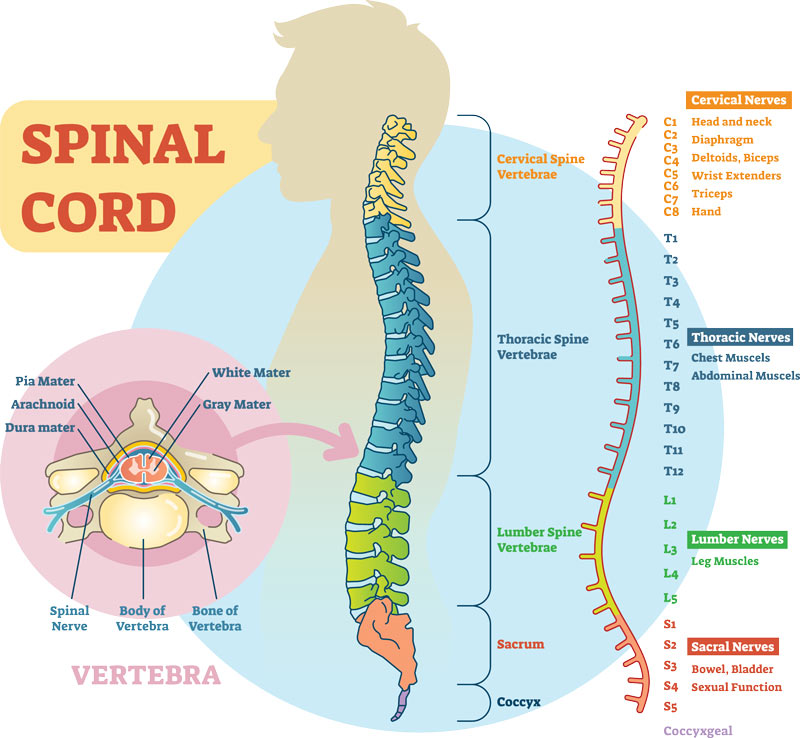
The occipital nerve is really composed of three different nerves that later communicate together at their terminal branches: the greater occipital nerve, the lesser occipital nerve, and the third occipital nerve. All three divisions travel from the back of the neck upwards to the back of the head and in a direction behind the ears. The main purpose of these nerves is to provide sensation to the skin over the back of the scalp.
Regarding distribution, the greater occipital nerve is the largest, and travels through a number of muscular structures about the neck, while the lesser occipital nerve, by comparison, pierces fascial openings in the neck. The third occipital nerve, by contrast, innervates the C2-3 cervical facet joint, in addition to perforating some muscular structures about the neck.
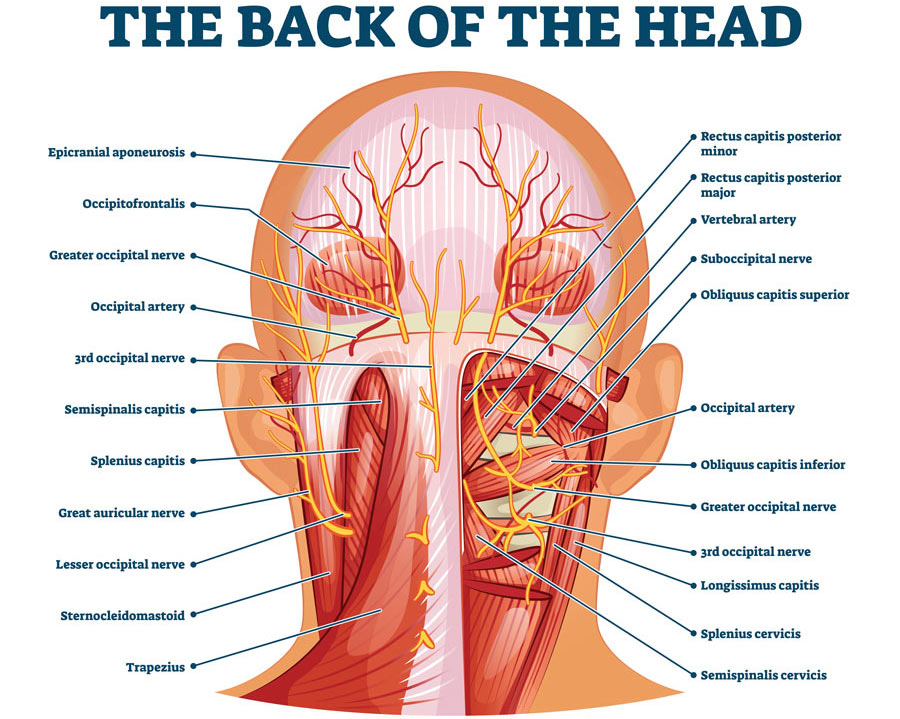
Symptoms usually occur on one side of the head and are characterized by an electric shock type of pain, burning, and throbbing.
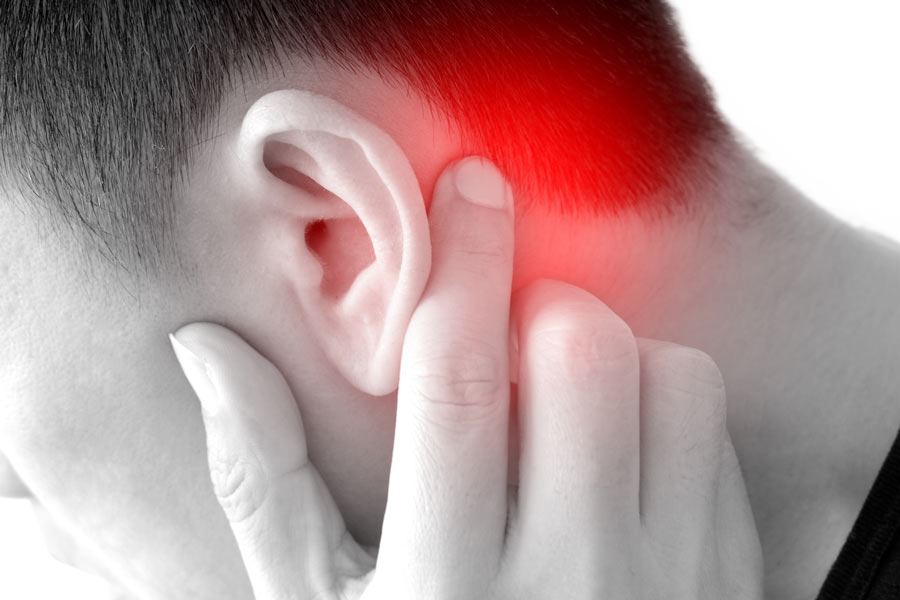
Symptoms may also be associated with pain behind the eye of the affected side. The pain is also often described as a migraine headache-like pain that can be difficult to distinguish. A common description by individuals with this condition is that even the most minor touch can trigger pain. This also may cause some lay people to disbelieve the person reporting the pain.
Because the greater occipital nerve traverses along the musculature in the back of the neck, compression can occur after whiplash-type injuries. Whiplash has commonly been associated with motor vehicle crashes, but it can also occur after slips and falls. Whiplash refers to the abrupt flexion and extension that occurs at the neck, similar to how a whip abruptly changes direction when snapped.
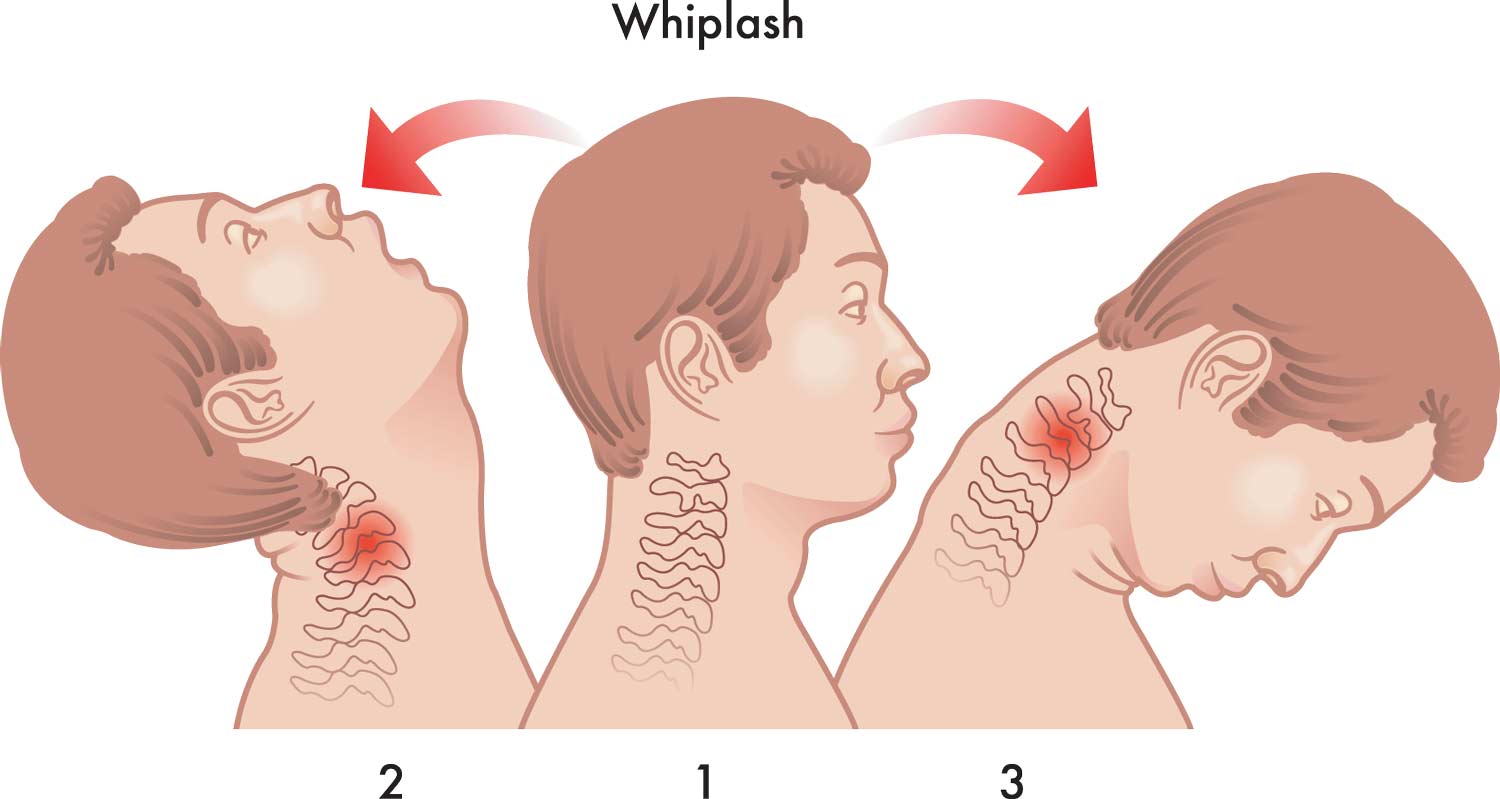
Whiplash has also been associated with the development of concussions because of a coup contrecoup type of injury. Coup contrecoup refers to a sudden acceleration and deceleration of the brain inside the skull. These motions can irritate the occipital nerve resulting in occipital neuralgia.
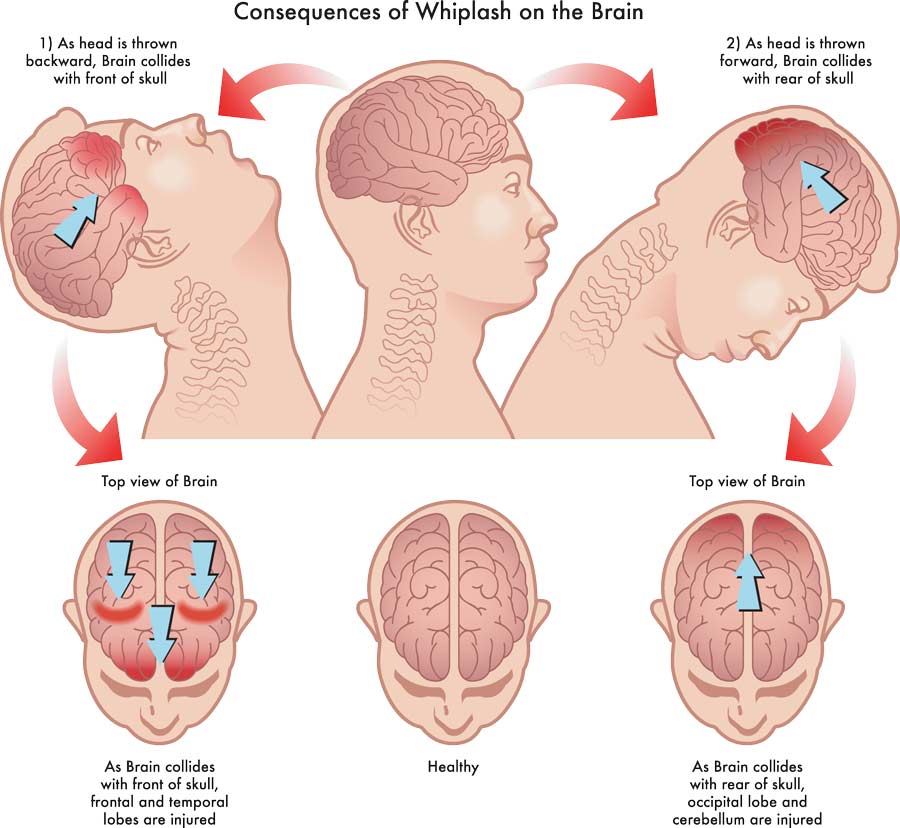
Direct trauma to the back of the head, and by definition to the occipital nerves themselves, are another category whereby occipital neuralgia can develop.
The diagnosis of occipital neuralgia is primarily a clinical one. There is no imaging or laboratory test to verify occipital neuralgia. If the history and physical examination completed by a medical provider are consistent with possible occipital neuralgia, confirmation may be made by injecting a local anesthetic into the area of the nerve. If pain relief occurs, then the diagnosis may be made. As there are up to 40% false-positive rates, a second anesthetic block is often recommended to further confirm a correct diagnosis.
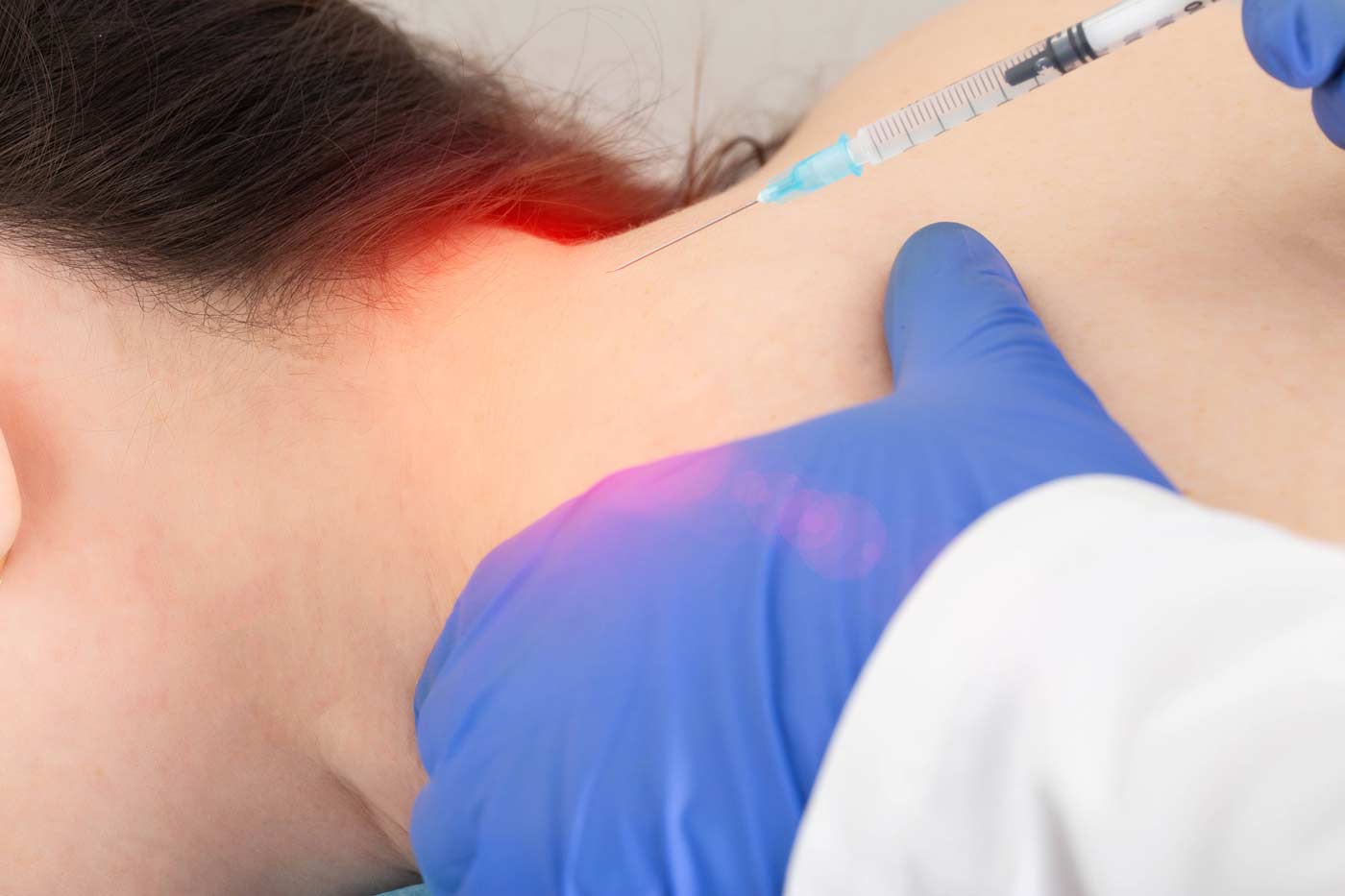
Treatment
Self-treatment for occipital neuralgia includes rest, anti-inflammatory medications, and massage. Prescription medications can include muscle relaxants, antiseizure drugs (that reduce a nerve’s excitability), and antidepressants. More invasive measures are considered when medications fail to provide relief. These include further nerve blocks, nerve blocks with steroids, nerve stimulators, and surgical decompression. More recently, Botox has had some promising results in improving pain.

If you have been injured, contact Diller Law’s Personal Injury Lawyers for a free legal consultation. Call us at 617-523-7771.
